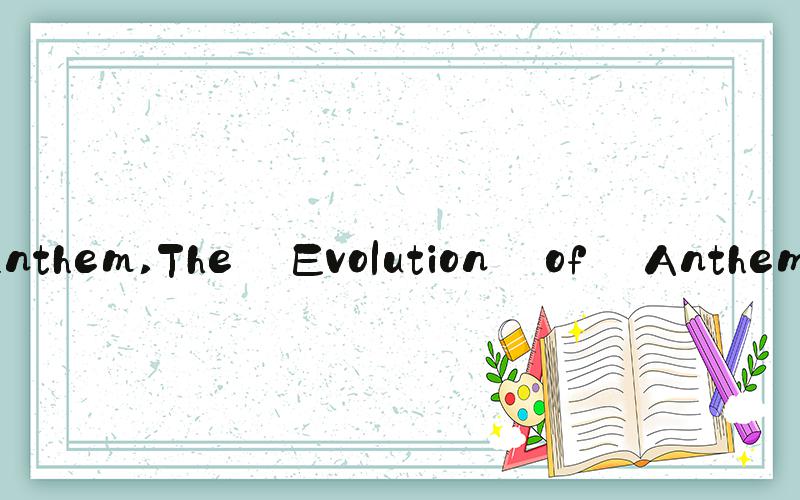 Anthem - A Symbol of Unity
Anthem - A Symbol of UnityAnthem - a song or hymn of praise or gladness, a symbol of unity that represents the identity of a nation or a community. Anthems have been a part of human history for centuries, serving as a rallying cry for people, uniting them in a common cause and inspiring them to overcome obstacles. In recent times, the role of anthems has become more important than ever, as they serve as a powerful tool for mobilizing people, fostering a sense of national and cultural pride, and inspiring people to work towards a common goal.
The Evolution of AnthemsThe concept of anthems can be traced back to ancient Greece and Rome, where they were sung in honor of gods and rulers. Over time, anthems became an essential component of the national identity of countries, reflecting their history, culture, and values. The first national anthem was "God Save The King/Queen," which was written in the UK in the 18th century. Since then, many countries have adopted their own national anthems, each with their unique cultural and historical significance.
The evolution of anthems has not been without controversy, however. Many people argue that anthems are outdated and exclusive, promoting a narrow sense of national identity that excludes minorities and immigrants. Some have even called for the abolition of anthems, arguing that they are a relic of a bygone era and have no place in modern society. Despite these criticisms, anthems remain an important aspect of national identity, and efforts are being made to make them more inclusive and representative of diverse communities.
Anthem and National IdentityAnthems play a crucial role in shaping our national identities. They evoke a sense of pride and belonging among citizens, and help to create a shared sense of identity and purpose. Anthems are often sung at important national events, such as sporting fixtures, political rallies, and cultural festivals. They serve as a symbol of unity, reminding people that they are part of a larger community with shared values and aspirations.
At the same time, anthems can also be divisive, particularly in countries with complex histories and diverse populations. In many countries, anthems are associated with nationalist movements, which often seek to exclude and marginalize minority groups. As such, it is important that anthems are inclusive and representative, celebrating the diversity of all citizens and promoting a sense of common purpose and identity.
ConclusionAnthem is not just a song, but a symbol of unity and identity. It is a powerful tool for inspiring people, fostering a sense of national pride and cultural identity, and promoting a shared sense of purpose and vision. While anthems have had their fair share of controversy, they remain an important aspect of national identity, and efforts are being made to make them more inclusive and representative. As we move forward in an increasingly globalized world, anthems will continue to play a vital role in shaping our collective identities and inspiring us to work towards a common goal.
